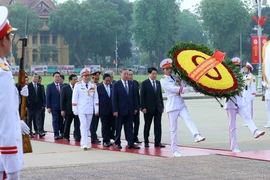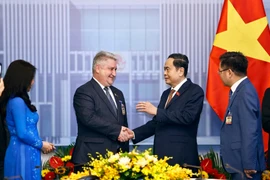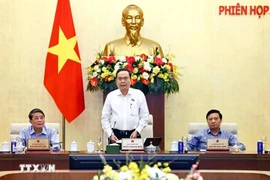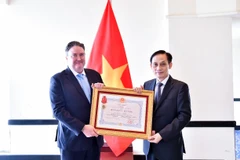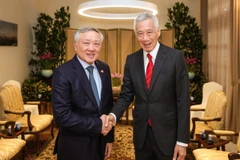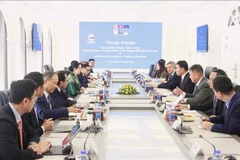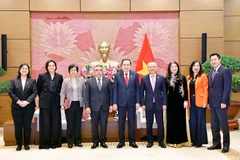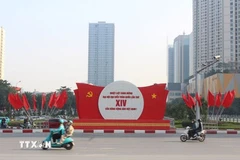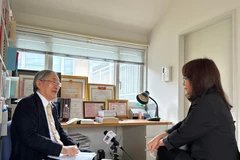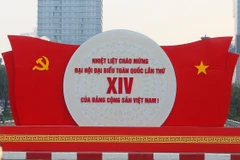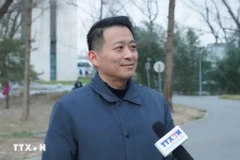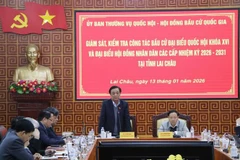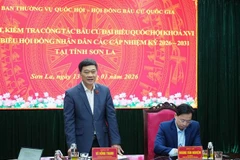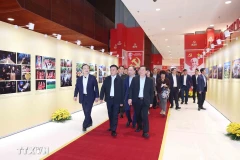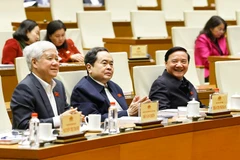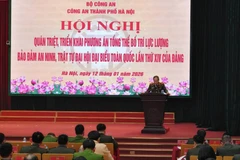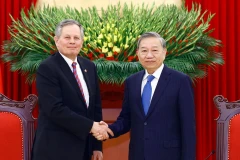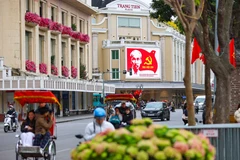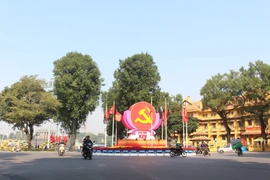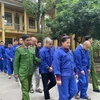Hanoi (VNA) – National Assembly Chairman Tran Thanh Man highlighted agenda of the 15th NA’s ninth session that opened in Hanoi on May 5 morning.
In his speech, the top legislator said laws and resolutions passed during the 15th NA’s ninth extraordinary session are effectively serving the streamlining of the state apparatus toward a leaner, more efficient political system while unlocking new space for socio-economic development.
He commended the strong political will and coordinated efforts of central and local agencies, Party units, the NA, the Government, the Vietnam Fatherland Front, the Supreme People’s Court, the Supreme People’s Procuracy, ministries, and agencies, noting their early successes in adopting these reforms.
Based on consensus reached during the preparatory session earlier in the morning, the legislature is scheduled to work over 37 days across two phases, marking the most extensive workload in the NA history. Lawmakers will deliberate and decide on a wide array of vital issues across constitutional affairs, lawmaking, supreme oversight, and other issues of national significance.

A key focus will be the adoption of a resolution to amend the 2013 Constitution, a polically and legally significant task to institutionalise the Party’s directives for streamlining the state apparatus to be more effective, efficient, and responsive to the people’s needs. To guide this process, the NA will establish a Drafting Committee on Constitutional Amendments, adopting a reformed methodology and transparent consultation process. Extensive public input will shape the revised text, with the final draft set for approval by June 30 and the amended Constitution effective from July 1.
The session’s legislative workload includes 54 draft laws and resolutions, with 34 laws and 14 resolutions slated for passage and six additional drafts under review. These cover state organisational reform, national defence-security, judicial reform, fiscal and budgetary management, education-training, sci-tech, innovation and digital transformation.
The NA will review key government reports, including the 2023 state budget settlement, an updated 2024 socio-economic and budget assessment, and early 2025 performance data. Adjustments to the 2025 state budget will prioritise allocating at least 3% to sci-tech, innovation, and digital transformation, targeting an 8% economic growth rate in 2025 and double-digit growth in subsequent years.
Lawmakers will address major institutional reforms, including a resolution to merge provincial-level administrative units, the establishment of the National Election Council, a decision to shorten the 2021–2026 term of the NA and local People’s Councils, and the setting of the election date for the 16th NA and People’s Councils for the 2026–2031 term. The NA Standing Committee will also pass resolutions on commune-level administrative reorganisation and other pressing issues.
On the oversight front, the legislature will examine reports from the Vietnam Fatherland Front Central Committee, public feedback and petitions, as well as the NA Standing Committee’s report on the Government’s response to voter concerns raised in the previous session. A 1.5-day Q & A session will focus on public welfare and state governance issues. The legislature will also evaluate the 2025 supervision programme and adopt a resolution outlining the 2026 supervision agenda.
Describing the ninth session as a historic turning point, Man stressed its role in ushering Vietnam into a new era of modernisation, digitalisation, sustainable and green development. He urged deputies to maintain high levels of focus, uphold integrity and innovation, engage in discussions, make wise decisions, and work closely with agencies and units to realise the Politburo’s Resolution No. 66 on overhauling the legislative process to meet the demands of national development in the new era./.

